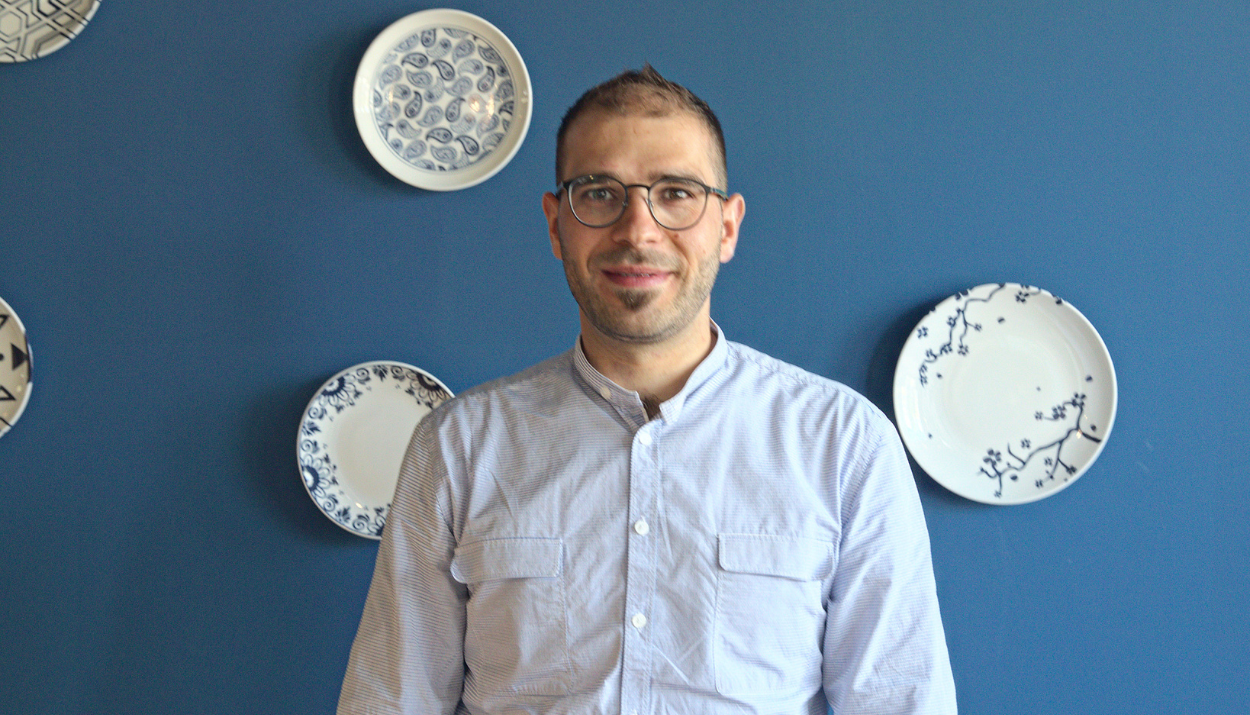In this way I want to give something back to the Netherlands, the country where I have been given new opportunities
28 july 2022
Anas Shako (31) came to the Netherlands in 2021. He is still busy learning Dutch, but is already making full use of his new language skills. At Vluchtelingenwerk Nederland (Refugee Work Netherlands) he helps others as an interpreter. He would like to share his story.
How did you end up in the Netherlands?
“My parents moved to Saudi Arabia from Syria. With my Syrian passport I didn’t have a chance to study and build a life there. I do have that opportunity in the Netherlands, and that's why I came here.”
How did you make contact with STE Languages?
“I have compared many language schools. I only care about one thing: the quality of training. So I mainly pay attention to the study materials and the teachers, not to the building and the interior, for example. The language training here is of a high quality, which is why I chose STE.”
Why is it important for you to learn Dutch?
“By learning Dutch, I have a better chance of getting a job. I have applied before, but without success. It's not my resumé, it's really because of the language. It also helps to get to know people. Speaking in English often makes people feel less comfortable. The Dutch want to speak their own language.”
You are following a group course at STE. Can you tell us about your learning experiences?
‘’With a group course you have lessons together and you help each other make progress. At the same time, there is also room for individual attention. We have a very good teacher who is there for everyone. The training itself is varied. Speaking, spelling, grammar; everything comes together.”
During the COVID 19 pandemic, you also had online classes. How did you like that?
“Dutch is a difficult language, more difficult than, for example, French and German. Online training makes it even more difficult. If you are in the same room, you can better follow the teacher's explanation. Pronunciation and sounds are much clearer than in an online classroom. That is very important to me. I need to ‘touch’ the words.”
What is your favorite Dutch word or expression?
“I would go for ‘gezellig’, which I think is such a funny word. Typically Dutch, you can't translate it into Arabic.”
What are the benefits of language training for your daily life?
“I am a volunteer for Vluchtelingenwerk (Refugee Work Netherlands). As an interpreter, I help other refugees with translations between Dutch and Arabic. I am still learning myself, but for the people I help, Dutch is completely alien. In this way I want to give something back to the Netherlands, the country where I have been given new opportunities.”
Do you have any tips for new students?
“It is very important to listen carefully to the teacher’s pronunciation. You learn a lot from that. Also important, do all your homework. I have researched many different schools, including the experiences of others, and can reassure new students that they’re in the right place at STE!”
What will your life look like in ten years?
"I don't know. Perhaps I'll be back in Saudi Arabia, maybe in the Netherlands. If I've built a life here, I'll stay. I now hold official refugee status, but I don't feel like a Dutchman yet. Who am I then? In the coming years I will be looking for the answer to that question.”


